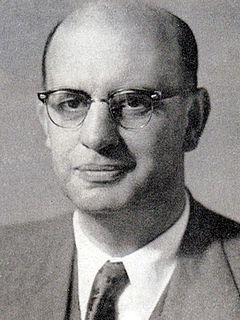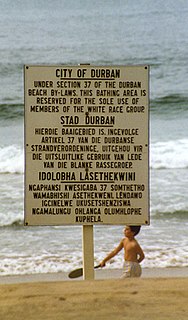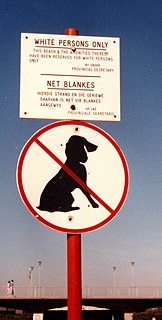 W
WGeneral elections were held in South Africa in August 1984 to elect Coloured and Indian representatives to their respective houses of the Tricameral Parliament. The Coloured elections for the House of Representatives took place on 22 August, and resulted in a victory for the Labour Party, headed by the Reverend Allan Hendrickse, which won 76 of the 80 seats. The Indian elections for the House of Delegates were held on 28 August and saw the National People's Party emerge as the largest party, winning 18 of the 40 seats. The Indian elections were opposed by the United Democratic Front and were marked by boycotts and protests. Despite the Prohibition of Political Interference Act of 1968 which banned mixed-race political parties, nine Indian members of Hendricke's Labour Party stood as independents, one of whom won a seat and subsequently joined the NPP.
 W
WThe 1984 South African presidential election was the first to be held under the new South African Constitution of 1983, which abolished the office of Prime Minister and merged its powers into the position of State President, who was now both head of state and government. According to the new basic law, the State President was to be elected by an electoral college composed of members of the majority party in each of the chambers of the new tricameral parliament. As such, the electoral college was composed of 50 National Party members elected by the House of Assembly, 25 Labor Party members elected by the House of Representatives, and 13 members of the National People's Party elected by from the House of Delegates.
 W
WSevere Tropical Storm Domoina in 1984 caused 100 year floods in South Africa and record rainfall in Swaziland. The fourth named storm of the season, Domoina developed on January 16 off the northeast coast of Madagascar. With a ridge to the north, the storm tracked generally westward and later southwestward. On January 21, Domoina struck eastern Madagascar, the third storm in six weeks to affect the nation; collectively, the storms caused 42 deaths and $25 million in damage (1984 USD). After crossing the country, Domoina strengthened in the Mozambique Channel to peak 10 minute sustained winds of 95 km/h (60 mph). On January 28, the storm made landfall in southern Mozambique, and slowly weakened over land. Domoina crossed into Swaziland and later eastern South Africa before dissipating on February 2.
 W
WOperation Nobilis was a special forces and naval operation in 1984 by the South African Defence Force (SADF) during the Angolan Civil War and South African Border War. Its objective was the destruction of three Angolan OSA missile boats in Luanda harbour with alternative targets of other Angolan naval or commercial transport vessels in the military harbour.
 W
WThe South African Railways Class 7E3, Series 2 of 1984 is an electric locomotive.
 W
WUnited Nations Security Council resolution 546, adopted on 6 January 1984, after hearing representations from the People's Republic of Angola, the Council recalled resolutions 387 (1976), 428 (1978), 447 (1979), 454 (1979), 475 (1980) and 545 (1983), and expressed its concern at the continuing attacks on the country by South Africa through occupied South West Africa.
 W
WUnited Nations Security Council resolution 547, adopted unanimously on 13 January 1984, after reaffirming previous resolutions on the topic, the Council expressed its concern at the death sentences issued to Malesela Benjamin Maloise, a member of the African National Congress.
 W
WUnited Nations Security Council resolution 554, adopted on 17 August 1984, after recalling 473 (1980), the Council condemned the 1984 general election in South Africa and the adoption of the Constitution of the Republic of South Africa Act.
 W
WUnited Nations Security Council resolution 556, adopted on 23 October 1984, after recalling 554 (1984) and the Universal Declaration of Human Rights, the Council expressed its alarm at the killing of anti-apartheid demonstrators in South Africa, reaffirming that the country's disregard for world opinion will lead to a further escalation of the "explosive situation".
 W
WUnited Nations Security Council resolution 558, adopted unanimously on 13 December 1984, after recalling resolutions 418 (1977) and 421 (1977) which imposed a compulsory arms embargo on South Africa and established a committee to monitor it, the Council stressed the continuing need for all Member States and international organisations to observe the arms embargo.